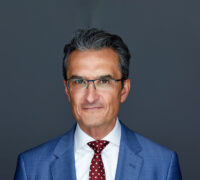A rival to traditional currencies? Only in lower-income countries
“While I’ve eaten a couple of good meals paid for by bitcoin, it’s not about to become a rival to traditional currencies for day-to-day payments. At least not until transaction costs come down and the volatility in price lessens,” said Keating.
But crypto currencies do add support to small economies. “It’s not a coincidence that El Salvador has made bitcoin legal tender,” he added. “What else do they have? Dollars, which are outside their control, and you pay very high transaction costs to move the small sums of money in and out that people living there need to.”
And, as we see the price of transactions in crypto coming down, the set-up in El Salvador will likely become a trend that spreads across borders.
Homemade, country-based currencies are in the making: could it kill crypto?
Major central banks have announced plans to develop their own digital currencies. Until regulatory frameworks for crypto advance further and until we see the exact nature of central banks’ digital currencies, it’s hard to say whether they are set to challenge crypto currencies – but the prediction from Keating is that a dual world is the most likely outcome.
Also, he added, there’s a real range in where central banks are at: “In China, it’s clear the authorities hope to make their own digital currency a replacement for cryptocurrencies. They have already outlawed bitcoin mining. The Bahamas has had its own central bank digital currency for a while, while El Salvador isn’t inventing its own but allowing citizens to use bitcoin.”
His prediction for the rest of the world? “In the US and Europe, as well as many other western countries, we will see an excellent coexistence between the crypto currencies and the central bank digital currencies, the exact form of which we don’t know.”
However, Keating’s vision is that “central banks’ digital currencies will be used for the everyday transactions – the standard accounting for companies and so on – but that crypto currencies will sit alongside that, both for doing the very extended range of blockchain applications – logistics, shipping etc. – and, ironically, for acting as the kind of engine that drives a lot of banking transactions in dollars, euros or Swiss francs.”
Keating likened this to taking the fossil fuel engine out your car and replacing it with an electric one. “It feels much the same when you drive it, but what’s under the bonnet is much more modern and efficient.”
YouTube



 Podcast available
Podcast available